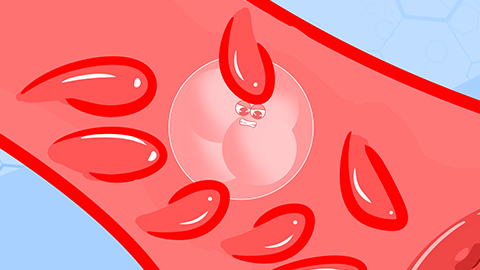How are uterine polyps formed?
Under normal circumstances, uterine polyps may be caused by hormonal fluctuations during the reproductive years, hormonal imbalances due to aging, endocrine disorders, endometritis, or injury to the uterine mucosa. It is recommended to seek timely medical consultation, identify the underlying cause, and then improve the condition under a doctor's guidance through general treatments, medication, surgical treatments, etc. A detailed analysis is as follows:

1. Hormonal fluctuations during the reproductive years: Estrogen and progesterone secretion in women of reproductive age may be unstable. Continuous estrogen stimulation of the endometrium can lead to excessive growth of local tissues and the formation of polyps. Maintain a regular sleep schedule, avoid staying up late or excessive fatigue, and reduce emotional fluctuations.
2. Hormonal imbalance due to aging: With increasing age, ovarian function declines and the secretion ratio of estrogen and progesterone becomes imbalanced, with estrogen relatively dominant. This can easily induce localized endometrial hyperplasia and the formation of polyps. Regular gynecological examinations are recommended to monitor uterine health.
3. Endocrine disorders: Local endocrine disturbances within the uterus and abnormal sensitivity of hormone receptors can lead to uncontrolled proliferation of endometrial tissue and the formation of polyps. Follow medical advice to use medications such as levonorgestrel-releasing intrauterine systems, mifepristone tablets, or leuprolide acetate microspheres for injection to inhibit polyp growth.
4. Endometritis: Long-term inflammatory stimulation of the endometrium causes abnormal tissue repair and excessive growth, leading to polyp formation. This is often accompanied by abnormal vaginal discharge and prolonged menstruation. Follow medical advice to use medications such as cefixime dispersible tablets, metronidazole tablets, or doxycycline hydrochloride tablets to control inflammation.
5. Uterine mucosal injury: Injury to the uterine mucosa caused by intrauterine procedures can lead to excessive tissue growth during the healing process, resulting in polyps, which may be accompanied by increased menstrual flow. If the polyps are small, regular observation may suffice; if the polyps are large or cause symptoms, hysteroscopic polypectomy should be performed to remove the polyps and repair the uterine mucosa.
In daily life, maintain external genital hygiene, avoid unclean sexual activity, and reduce the risk of intrauterine infection. Follow a light diet, consume more fresh vegetables and fruits to supplement vitamins. Engage in moderate exercise to strengthen your constitution and support a healthy uterine condition.




